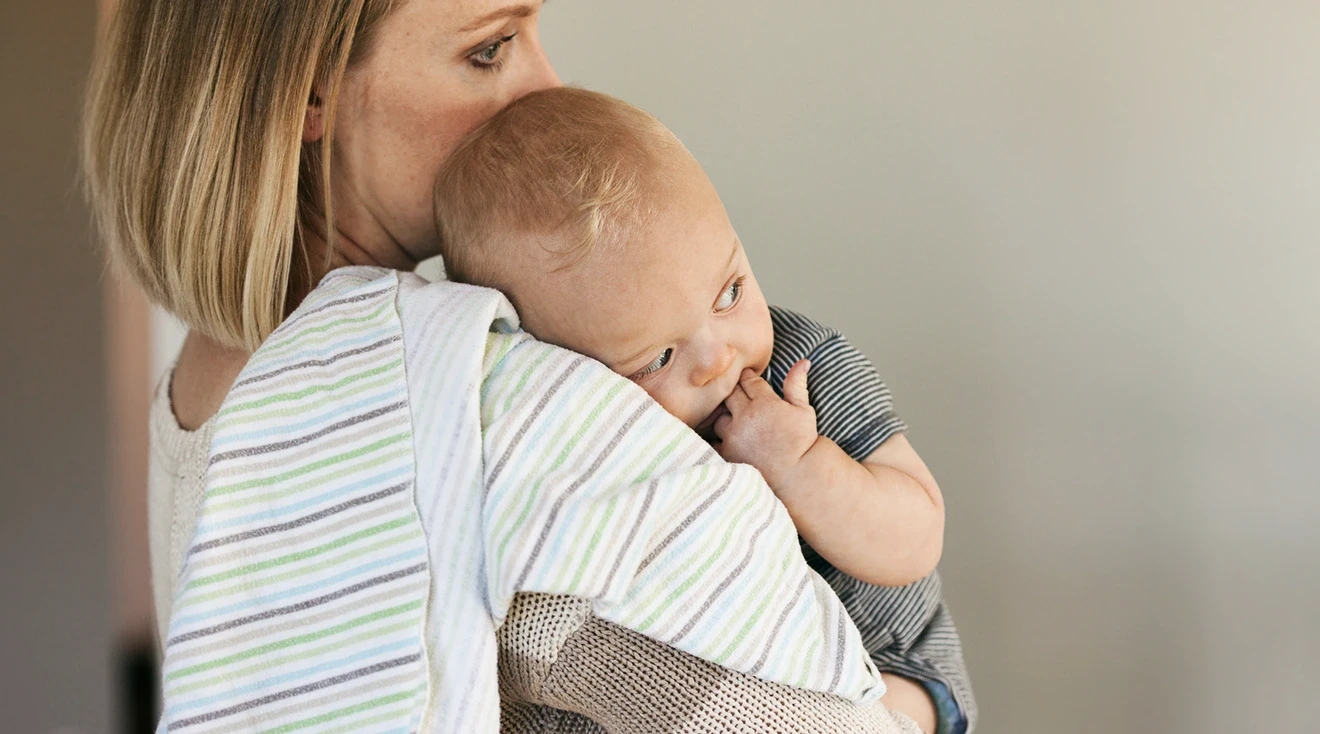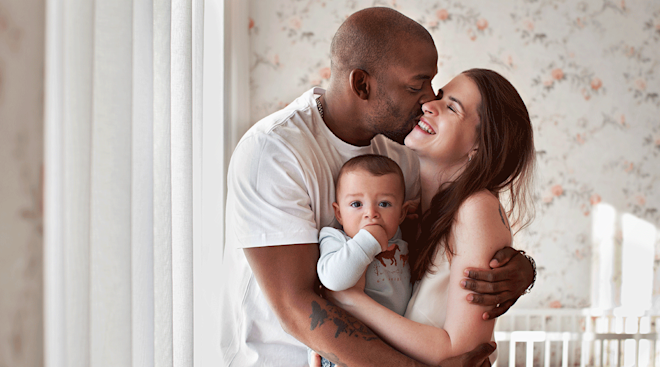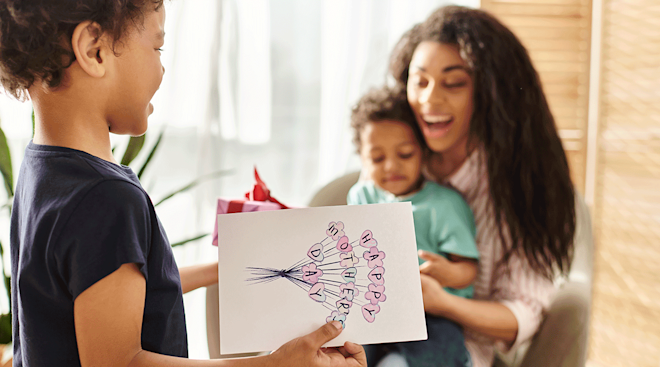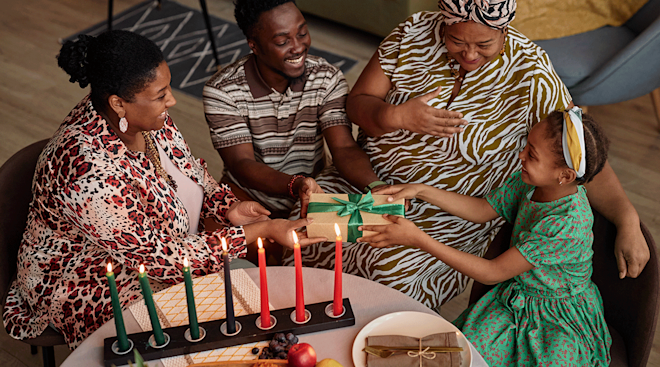Why Parenting Can Feel So Lonely (and What You Can Do About It)
Being a parent, especially a new parent, can be incredibly isolating and lonely. Suddenly, you’re taking care of a little person’s needs 24/7—and the sleeplessness, health scares and emotional ups and downs that come with the territory can leave you with little time for yourself. Many of us also lack social support or a community to call our own. It’s no wonder that U.S. Surgeon General Vivek H. Murthy called loneliness a major public health crisis in a recent report warning that social seclusion can contribute to critical physical and mental health issues.
Amid the national loneliness epidemic, it’s no surprise that parents are particularly vulnerable. “Loneliness is something that’s often experienced by people as they transition into parenthood,” says Aparna Iyer, MD, a board-certified psychiatrist with a focus on reproductive mental health in Dallas. “So much of parenting feels like a solo journey—the late-night feeds, the insomnia, breastfeeding—to the point where many [parents] will express feeling a sense of loneliness even within their marriages.” Moreover, when you add mental health challenges into the mix, life as a parent can feel even more isolating. Fortunately, you don’t have to suffer in solitude, and there are steps you can take to build and maintain meaningful connections. Ready to take action? Read on to learn more about why parenting can feel so lonely, and get expert tips to help you find support along the way.
Statistics suggest that parents experience loneliness more often than nonparents. Data commissioned by Cigna in 2021 shows that about 65 percent of parents and guardians are considered lonely, compared to 55 percent of nonparents. Moms are also more likely to be lonely than dads, at 69 percent versus 62 percent. And single parents are particularly prone to struggle: 77 percent are considered lonely.
There are so many measurable and immeasurable forces driving this truth. For starters, becoming a parent is transformative. You’re still you, but you’re also a new you. “Many of my moms will express that they simply feel they struggle to feel connected to their [nonparent friends] who can’t relate to their lives,” says Iyer.
Additionally, caring for an infant can be innately isolating, especially if you’re stuck at home between naps and feeds with little adult interaction to keep your mind stimulated. And it doesn’t necessarily get easier as baby gets older, even if opportunities for socialization become more plentiful. The simple truth is that parents are incredibly busy most of the time, and many of us don’t have a lot of help. “It’s hard to find the time to build relationships or invest in them when you’re constantly doing things for work, the household and running kids around,” says Renée Goff, PsyD, PMH-C, a licensed clinical psychologist and owner of Orchid Wellness & Mentoring in Cincinnati, Ohio. “We live in a country where multigenerational homes are not the norm; there’s less built-in help.” And our society doesn’t necessarily support asking for help. “It’s stigmatized, and you’re raised to believe you should be able to do it all and with a smile on your face,” says Goff.
What’s more, while the COVID-19 pandemic exacerbated the loneliness issue as a whole, it may have been more acutely felt by parents who lost all social outlets for themselves and their families. And societal friction didn’t help either. “The reality is that all parents have the desire to keep their families safe, but we simply can’t all agree on the best way to do that, which can feel polarizing and isolating,” says Iyer. This can make it a struggle to find a community of trusted people.
Of course, social media is a double-edged sword. While it can help you meet other parents, it can also increase isolation and make you doubt your abilities as a parent. “It can also cause you to feel shame and guilt for not feeding your kids organic, homegrown foods; not gentle parenting enough; not having enough enriching ‘experiences’ for your kids. It can just make you want to hide,” Goff adds.
According to the Surgeon General’s report, loneliness can have serious physical and mental health consequences, including a 29 percent increased risk of heart disease, a 32 percent increased risk of stroke, a 50 percent increased risk of developing dementia for older adults, as well as a higher risk of anxiety and depression. Additionally, lacking social connection substantially increases the risk of premature death.
For new parents, there are even more health risks: Loneliness is considered a key factor for postpartum depression, which affects about one in seven new moms. “The reality is that the relationship is likely complex and bidirectional,” Iyer explains. “People with depression often will lose motivation and energy; as a result, they may be inclined to socially isolate further. Add loneliness into the mix, and the inclination may be to negatively view ourselves and our social networks, thus leading to a further withdrawal from the people who support us the most.” Furthermore, feeling like you’re carrying the full burden of parenting without help—or even an outlet for venting—can lead to burnout.
On the flip side, staying connected to friends and community can have real benefits. For starters, it can bring a sense of comradery to the less than enthralling parts of parenting and provide joyful moments of togetherness. Better still, Iyer says that maintaining relationships can promote a healthier, more active lifestyle and foster better sleep patterns. “People who feel more connected to others also express greater feelings of happiness and well-being,” she says.
Additional research shows that people who are more socially connected report feeling more cognitively sharp with a greater sense of memory (something that can feel especially helpful when you’re in the fog of early parenthood).
Parenting can feel overwhelming, and it can be hard to find the time for social connection. Iyer says that, in her practice, she helps new parents build a sense of belonging in their community, deepening the connections they already have with existing friends and romantic partners. She reminds parents that it’s about quality over quantity. “Focusing on spending time with just one or two close friends can be really curative for deep feelings of loneliness,” she says. Goff echoes this sentiment: “You need people with whom you feel safe, can vent to and will know when you are struggling even if you don’t come out and say it. You also need to be that friend in return.”
Of course, forming new relationships is important too. Making friends as a new parent can push you outside of your comfort zone, but the benefits will be worth it. Goff encourages parents to seek out local meet-up groups, or join baby-and-me classes. Finding time is hard, but you can take small steps: “It can be a quick cup of coffee,” she says. “Most importantly, if you must cancel, reschedule. Get it on the calendar before something else comes up!”
Finally, if you’re feeling lonely and need someone to talk to, reach out to a therapist or your doctor for guidance. You can also call the National Maternal Mental Health Hotline at 1-833-852-6262 to speak with a trained counselor about things you may be struggling with.
About the experts:
Renée Goff, PsyD, PMH-C, is a licensed clinical psychologist and owner of Orchid Wellness & Mentoring in Cincinnati, Ohio. She received her doctor of psychology from Wright State University in Dayton, Ohio.
Aparna Iyer, MD, is a board-certified psychiatrist with a focus on reproductive mental health in Dallas. She is an author and has been featured in several academic and popular media outlets. She is also a speaker for several organizations, focusing on maternal mental health and emotional wellness.
Please note: The Bump and the materials and information it contains are not intended to, and do not constitute, medical or other health advice or diagnosis and should not be used as such. You should always consult with a qualified physician or health professional about your specific circumstances.
Plus, more from The Bump:
Navigate forward to interact with the calendar and select a date. Press the question mark key to get the keyboard shortcuts for changing dates.




















































